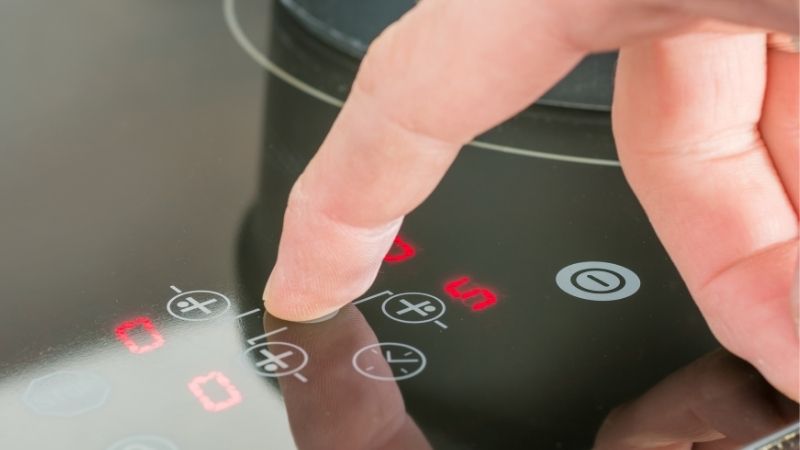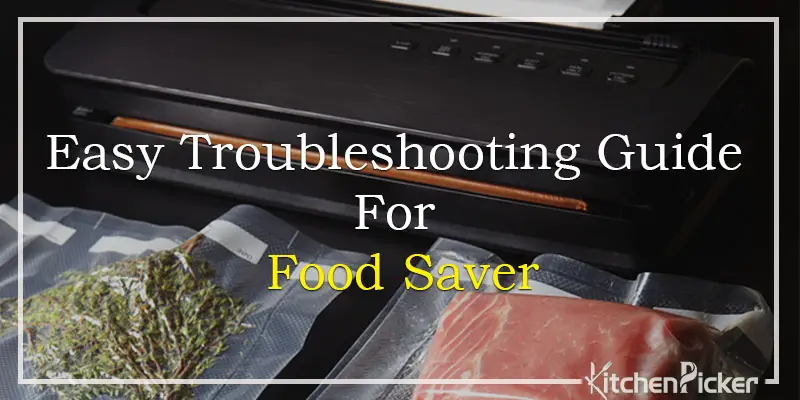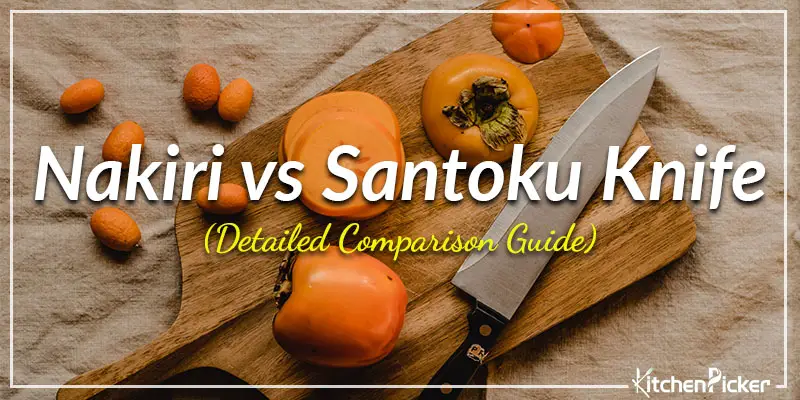A rusty and unpolished knife can be a big hassle to work with. It is more dangerous to work with a blunt and rusted knife than a sharp one.
So, polishing the knives and keeping them rust-free and sharp is essential for ease in your kitchen. By the end of this article, you will be able to use household items to polish your knives.
Polishing a knife can be tricky and will need some work. But with the right tools and a bit of patience, you will be able to do it in no time. In this article, we have compiled a step-by-step guide on how you can polish a knife with household items.
Why Polish Knife with Household Items?
Polishing knives with household ingredients is often a preferred choice for homemakers and chefs. The reason is primarily the cost it takes to polish and re-shine the knives from a commercial source.
Secondly, it’s the time and hassle that comes with the process. Often, if takes 3-7 days to polish a knife if you seek professional assistance for the purpose.
For these two reasons, it’s very feasible to go with available household items instead of commercial knife polishing service.
Things you Need to Polish The Knife
To polish a knife, you’ll have things around your kitchen or garage that does the job. Here’s a list of items you’ll need to collect-
- Cleaning Agent: Baking soda or vinegar.
- Rust/Patina Removal: Baking soda or lemon, scouring pad.
- Polishing: Nylon strap, or whetstone/smooth stone, or sandpaper.
3 Steps to Polishing a Knife with Household Items
Polishing a knife means fine-tuning its edge to make it razor-sharp and giving it a gleaming shine. Some people consider it to be the elimination of nicks and flaws. In any case, the goal is to get a razor-sharp edge.
Here are 3 steps that you can follow to polish a knife with everyday household items.
Step 01 – Cleaning All The Accumulated Dirt
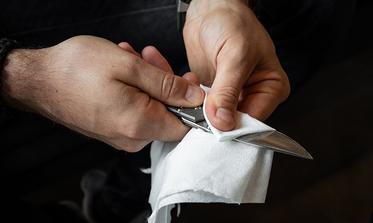
Credit: knivesandtools.com
You need to clean the surface dirt before you start scrubbing away the rust. It is essential to first remove any accumulated dirt so that the rust may be easily removed.
Some would like to go with water to use as a cleaning agent. But instead of water, we recommend using a combo of baking soda and vinegar as effective household knife cleaning ingredients.
In Absence of these household items, you can use a light metal cleaning solution as well. This liquid cleaner from Flitz is our recommendation.
Then you can start scrubbing away. Use a used tooth brush as the scrubber. As long as the dirt is not very stubborn, they’re supposed to come out easily.
Now that you have scrubbed the dirt away, there might be some residue on and around the knife. So the dirt should be cleaned before you start polishing.
Dry up the knife after cleaning with a dry, soft cloth. You can also use air blower as well in case you’re in a rush.
Step 02- Cleaning Up The Rust and Patina
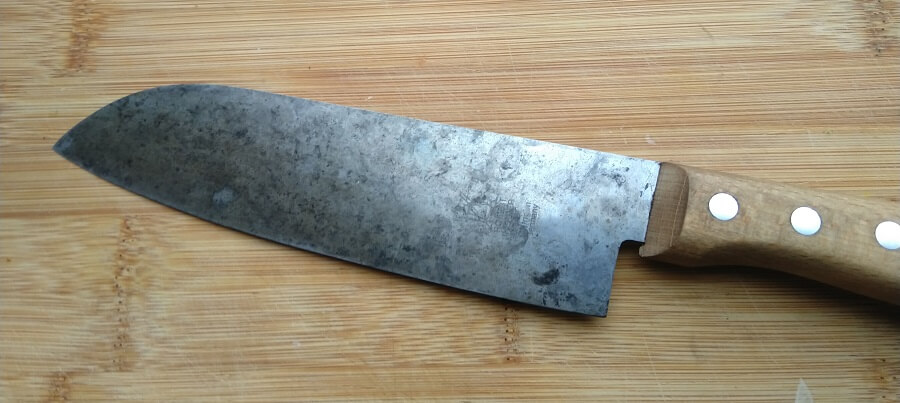
Credit: hikeforpurpose.com
Cleaning out the patina and rust is the next step of polishing the knife. And we have two household options for the job-
- Using baking soda
- Using lemon juice or lemon+kosher salt combo.
Now, comparing to accumulated dirt, patina and rust are pretty harder to remove. Go through the steps for each of these options-
To remove knife rust and patina with baking soda-
- Rinse the knife with cold water, especially the wet area.
- Now spread some baking soda throughout the knife blade. Let the excess baking soda to fall off.
- Take a scouring pad and keep scrubbing. Especially on the rusty areas.
- Rinse the blade and check if the rust is removed or not. If needed, repeat the process for as many times as needed.
To remove knife rust and patina with lemon or lemon juice-
- Sprinkle some salt on the knife blade, and cut a lemon into half.
- Rub the lemon on the salted knife blade, especially the rusty and patina part. The abrasiveness of the salt helps the acidity of the lemon to fight against the rust and patina.
- Give it a few attempts so that the deeply rooted rust also gets out.
- If the rust isn’t deep and widespread enough, you can also try soak the knife in liquid lemon juice. To it for overnight and you’ll see the rust to be loosen up.
Step 03 – Polishing the Knife
Now that you have removed all the rust, and cleaned the residue, it’s time to give your knife the final polish. Polishing a knife can be bothersome but it’s way easier than rust removal. Here are some tips to polish a knife.
You can use a nylon strap for polishing and it will work as well as a whetstone polish. You can find nylon straps on backpacks. Move the knife away from the cutting edge by rubbing it against the nylon strap.
If you don’t have a whetstone you can also use smooth stone that you can find around your house. You would use it exactly like a whetstone.
Sandpaper isn’t a daily item, but it’s so cheap and versatile that it’s a good thing to have on hand. Sandpapers are a useful item to polish knives. Depending on the grit you can get polish from good to best.
Believe it or not, you can even use a leather belt to polish your knives. You might have a spare belt lying around the house and it is a quick and easy item for polishing knives. Many professionals use leather belts for polishing knives.
5 Tips to Maintain The Shine of Your Knife
Once you’ve polished your knife, it’d keep being rusty and dirty over time. Here goes some tips to maintain the shine as long as possible-
Tip 1: Using the knife frequently
It is essential that a knife should be used frequently rather than keeping it in storage for a long time. A knife sitting in storage for a long time will collect dirt and get affected by humidity. It will eventually become rusty and dull.
Tip 2: Cutting on the Right Surface
The cutting surface you use has a direct impact on the state of your blades. Hard or metal surfaces, such as stainless steel, granite, and aluminum, should be avoided. Cutting on wood, plastic, or polyethylene, on the other hand, is usually fine.
Different knives have different cutting abilities. Also, as long as you use a cutting board made of the appropriate materials, you should be fine.
Tip 3: Cleaning Your Knives
Throwing a knife in the dishwasher is the worst thing you can do to it. The blade and handle of your knife can be severely damaged by heat, detergent, and a barrage of water. Washing them properly helps them keep their sharp edge for much longer.
Hand-wash your knife using a sponge or dishcloth soaked in soap. Keep your fingers away from the sharpened edge and wipe away from the base to the tip.
Tip 4: Keeping the Knives Dry
To avoid rusting on the blades, dry your knives right after cleaning them. Putting damp knives away, especially in a block, can lead to mold and germs growing in the storage container.
While germs and mold are not always detrimental to the blade, they can be harmful to your health if you use your knives for cooking.
Tip 5: Storing Knives Properly
While some knives fold to make storage easier, others must be stored in a precise way to keep their edge. Keep your knife separate from other culinary utensils, hiking equipment, and carpentry tools. A magnetic knife holder is the best way for the job.
Your unfoldable knives need more than just a drawer to themselves; they need their own block to safeguard their edge.
Frequently Asked Question
What is the best polishing compound for knives?
The most prevalent polishing compound is white rouge. It’s a general-purpose compound that can be used on carbon steel, plastic, brass, fiberglass, and other materials.
What can I use to shine my knife?
You can use water and sandpaper to shine your knife.
Can sandpapers be used to polish a knife?
Yes, sandpapers can be used to polish a knife.
Can you use olive oil on knives?
Any oil will do, from clove oil to olive oil. We recommend using canola or maize oil instead of olive oil because olive oil can go rancid over time, but any food-safe oil will suffice.
Can Coke remove rust?
Answer: If you have any rust stains or tools that are covered in rust, Coca-Cola or Pepsi will help you get rid of them. Submerge the rusted object in Coke for an hour or overnight, then scrub the rust away.
Conclusion
We appreciate your time with us if you have read that far. We really enjoyed this article being curated. Knives are essential tools of the kitchen and keeping them rust-free is important to work safely.
We are happy that we could show some ways in which you can polish your knives without the help of any professional tools.
We hope that we were able to give you some idea on how to polish a knife with household items.

